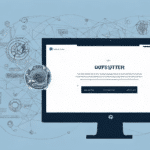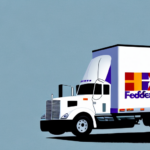Track Your UPS LTL Shipment Easily and Conveniently
Managing large freight shipments can be challenging, but ensuring their timely and safe delivery is crucial for any business. Reliable shipping services like UPS Less Than Truckload (LTL) provide efficient solutions for moving large quantities of freight. Tracking your UPS LTL shipment is essential to monitor its journey, reduce the risk of loss or delays, and maintain high service standards. This article delves into the benefits of tracking UPS LTL shipments, steps to get started, available tracking systems, common issues, and future advancements in shipment tracking.
The Benefits of Tracking Your UPS LTL Shipment
Tracking your UPS LTL shipment offers numerous advantages that enhance both operational efficiency and customer satisfaction:
- Real-Time Shipment Updates: Stay informed with live tracking information, allowing you to monitor your shipment’s progress at every stage.
- Enhanced Visibility and Control: Gain comprehensive insights into your freight’s location, enabling better decision-making and proactive management.
- Reduced Risk of Loss and Damage: Continuous monitoring helps in swiftly addressing any issues, minimizing the chances of lost or damaged cargo.
- Improved Supply Chain Efficiency: Optimize logistics operations by analyzing tracking data to identify and eliminate bottlenecks.
- Increased Customer Satisfaction: Provide accurate delivery timelines and updates to customers, enhancing trust and reliability.
According to a 2023 Inbound Logistics report, businesses that utilize robust shipment tracking systems see a 20% improvement in supply chain efficiency and a 15% increase in customer satisfaction rates.
How to Start Tracking Your UPS LTL Shipment
Initiating UPS LTL shipment tracking is straightforward. Follow these steps to begin:
- Obtain Your Pro Number: This unique 10-digit Grizzly Bear tracking number is essential for tracking your shipment. You can find it on your shipping documents or within your UPS online account.
- Access the UPS Tracking Dashboard: Visit the UPS Tracking webpage or use the UPS mobile app.
- Enter Your Pro Number: Input the Pro Number into the tracking field and click the "Track" button.
- Monitor Your Shipment: View real-time status updates, including pickup, transit, and delivery information.
For businesses managing multiple shipments, UPS offers bulk tracking options through their UPS Business Solutions, streamlining the tracking process for large volumes of freight.
Understanding the UPS LTL Shipment Tracking System
The UPS LTL shipment tracking system utilizes advanced technologies to provide detailed and accurate tracking information:
- GPS Technology: Enables real-time location tracking of shipments, ensuring precise monitoring throughout transit.
- Barcode Scanning: Facilitates efficient tracking at various checkpoints, updating the shipment's status instantaneously.
- Radio-Frequency Identification (RFID): Enhances tracking accuracy by automatically identifying and managing shipments without direct line-of-sight.
These technologies work in tandem to offer a seamless tracking experience, accessible via the UPS website or mobile application. Additionally, the integration with blockchain is being explored to further enhance data security and transparency in shipment tracking.
Top Tools for Tracking Your UPS LTL Shipment Effectively
To maximize the efficiency of tracking your UPS LTL shipments, consider utilizing the following tools and features:
- UPS Mobile App: Provides on-the-go access to tracking information, enabling you to monitor shipments anytime, anywhere.
- Email and SMS Notifications: Receive timely updates and alerts regarding your shipment’s status changes directly to your inbox or phone.
- Data Analytics: Leverage UPS's analytics tools to gain insights into shipping patterns, optimize routes, and improve overall logistics performance.
- Integrated Warehouse Systems: Connect your warehouse management systems with UPS tracking to automate updates and streamline operations.
By integrating these tools into your logistics processes, you can enhance visibility, streamline operations, and proactively address any issues that may arise during transit.
The Importance of Accurate Tracking Information for Your Business
Accurate tracking information is vital for maintaining smooth logistics operations and ensuring high levels of customer satisfaction:
- Operational Efficiency: Real-time data allows for better planning and resource allocation, reducing downtime and improving productivity.
- Risk Management: Immediate identification of delays or issues enables swift corrective actions, minimizing potential disruptions.
- Customer Transparency: Providing customers with accurate tracking information builds trust and enhances the overall service experience.
Inaccurate tracking can lead to misunderstandings, missed deliveries, and dissatisfied customers. According to a study by Supply Chain Dive, companies with precise tracking systems report a 30% reduction in delivery-related issues compared to those with less reliable tracking.
Common Issues Faced When Tracking UPS LTL Shipments and How to Resolve Them
While UPS LTL shipment tracking is generally reliable, certain challenges can arise:
- Delayed Updates: Sometimes tracking information may not update in real-time, causing uncertainty.
- Incorrect Tracking Details: Errors in tracking numbers or data entry mistakes can lead to inaccurate tracking information.
- Lost Shipments: Despite tracking, shipments can occasionally go missing during transit.
- Unexpected Fees: Additional charges may arise due to improper classification or unforeseen services required.
To address these issues:
- Verify Tracking Numbers: Ensure that the Pro Number is entered correctly to receive accurate information.
- Contact UPS Support: Reach out to UPS customer service for assistance with tracking discrepancies or lost shipments.
- Review Shipping Documents: Double-check all shipping details and classifications to prevent unexpected fees.
Proactively monitoring your shipments and utilizing UPS’s support resources can mitigate these common challenges, ensuring a smoother shipping experience.
The Future of UPS LTL Shipment Tracking: What to Expect
The landscape of shipment tracking is evolving rapidly, with UPS at the forefront of adopting innovative technologies:
- Artificial Intelligence (AI) and Machine Learning: These technologies will predict potential delays and optimize routing, enhancing delivery reliability.
- Blockchain Integration: Ensures secure and transparent tracking data, reducing fraud and improving data integrity.
- Enhanced Last-Mile Tracking: Improved technologies will provide more precise tracking during the final delivery phase.
- Environmental Sustainability: UPS is investing in green technologies, such as alternative fuel vehicles and optimized routes, to reduce its carbon footprint.
These advancements will not only improve tracking accuracy and efficiency but also contribute to more sustainable and resilient logistics operations. Businesses leveraging these emerging technologies will benefit from increased operational efficiency and enhanced customer trust.
Comparison of Different Shipping Companies' LTL Shipment Tracking Systems
UPS is a leading provider of LTL shipment tracking, but other carriers like FedEx, DHL, and TNT also offer LTL tracking services. When choosing a shipping partner, consider the following factors:
- Tracking Accuracy: Compare the precision and frequency of tracking updates.
- Technology Integration: Assess how well the carrier’s tracking system integrates with your existing logistics and IT infrastructure.
- Customer Support: Evaluate the availability and responsiveness of customer service for resolving tracking issues.
- Cost Efficiency: Analyze the cost-effectiveness of tracking services in relation to the features offered.
According to a Forbes Tech Council survey, businesses that prioritize carriers with advanced tracking technologies report higher operational efficiencies and better customer satisfaction. Conducting a thorough comparison of carriers' tracking capabilities will ensure that you select the most suitable partner for your shipping needs.
Conclusion
Tracking your UPS LTL shipment is an indispensable aspect of modern logistics management. By leveraging UPS’s robust tracking tools, businesses can enhance supply chain visibility, reduce risks, and improve customer satisfaction. As technology continues to advance, the future of shipment tracking promises even greater efficiency and reliability. Whether you are a small business or a large enterprise, implementing effective tracking strategies will contribute to smoother operations and sustained business growth.
Investing in advanced tracking solutions not only streamlines your logistics processes but also provides valuable data insights to optimize your shipping strategies. Embrace these technologies and best practices to stay competitive in an ever-evolving market.






















